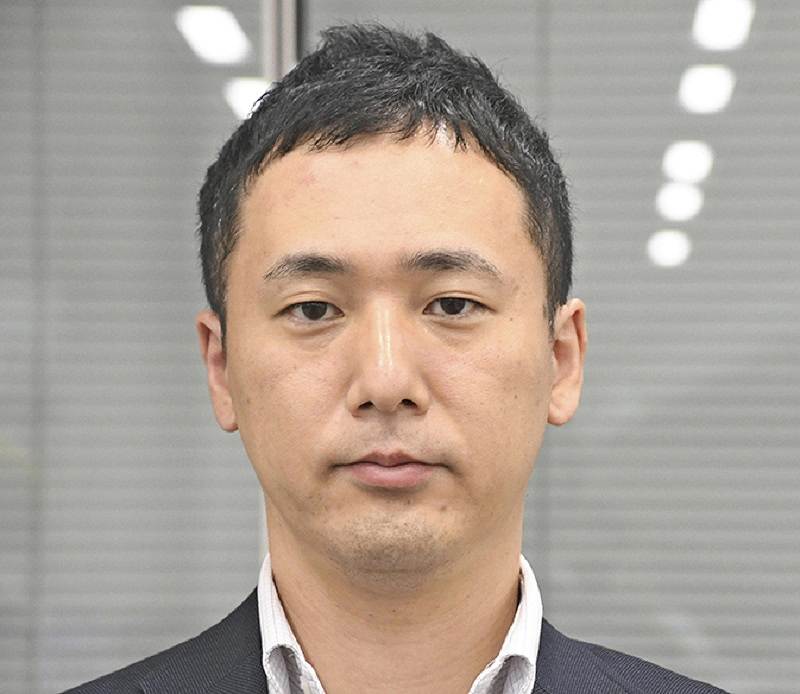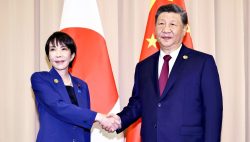
A Nobel Prize medal
8:00 JST, October 22, 2022
The winners of this year’s Nobel Prizes were announced earlier this month. The Nobel Prize in Physics was awarded to researchers in the U.S. and Europe who have conducted groundbreaking experiments on the mysterious property of “quantum entanglement,” which is the basis for technologies such as quantum computers, the next generation of high-speed computing machines. The Prize in Physiology or Medicine was awarded to a Swedish researcher who contributed to the elucidation of human history by analyzing Neanderthal DNA from fossils dating back some 40,000 years. Although it was a bit disappointing for Japan that no Japanese researcher won a Nobel this year, after Syukuro Manabe, a senior meteorologist at Princeton University, won the physics prize last year, these winners have again shown us the importance of basic science research.
Among the winners who personally caught my attention was Barry Sharpless of Scripps Research in the U.S. He won the chemistry prize for his development of “click chemistry,” a method for easily combining different molecules. This was his second Nobel Prize, as he also won in 2001 together with Ryoji Noyori, University Professor of Nagoya University, and another researcher for their work on chirally catalyzed hydrogenation reactions. According to the Nobel Foundation, only five people have won a Nobel Prize twice, and only two have been repeat winners in chemistry. Sharpless, now 81, first proposed the idea of the click chemistry method about 20 years ago, when he was almost 60 years old.
Noyori said: “Scientists who already have gained huge success tend to stay in their field and develop within it, but he sought new developments in a field completely unrelated to his initial award-winning achievements. I want to say to him, ‘How young you are!’”
Prior to the announcement of the Nobel Prize, Sharpless took part in the Ig Nobel Prize awards ceremony as a guest in September. The Ig Nobel Prize is awarded annually to scientists around the world who conducted research that make people laugh and think. Japanese have been among the prizewinners for 16 consecutive years, and this year’s “Engineering Prize” went to Prof. Gen Matsuzaki of the Chiba Institute of Technology for his elucidation of how people use their fingers to turn cylinders such as doorknobs. During the award ceremony, held online by video conference, Matsuzaki urged Sharpless to pinch his own nose with his fingers like a doorknob and Sharpless actually did just that, making the audience laugh.
The Nobel Prize and the Ig Nobel Prize have something in common. In many cases, both prizes are awarded for work done by researchers at young ages, with Sharpless among the few exceptions.
Consider the results of an analysis by Japan’s National Institute of Science and Technology Policy (NISTEP) of the ages of Nobel Prize winners from 1945 to last year. In three categories — Physics, Chemistry and Physiology or Medicine — the analysis found that the Japanese laureates were on average 40 years old when they conducted the research that led to the awards, while the 470 foreign laureates received their awards based on results from an average age of 38.
It was around 25 years ago that Matsuzaki began his research analyzing the movement of fingers turning cylinders, and he was a graduate student at the time. Hisashi Murakami, an assistant professor at Kyoto Institute of Technology, who won the Ig Nobel Prize last year for his research on the effects of “walking with smartphones” on pedestrian traffic, is also a young researcher in his 30s. These facts suggest that the flexible thinking of younger generations is often the source of original and unique research results.
However, the situation surrounding young researchers in Japan is deadly serious. The precarious employment situation for young researchers has caused a lot of Japanese students to shy away from doctoral courses. Even if they remain at a university, full-time employment positions are limited, and opportunities for employment in the private sector are fewer than for students completing undergraduate or master’s courses. One associate professor at the University of Tokyo whom I know well says that many excellent students do not go on to doctoral programs and instead go to work for private companies, due to how they are treated.
According to NISTEP, doctoral degrees were awarded to 15,128 people in Japan in fiscal 2019. This is only about a quarter of the 61,060 in China and about half of the 28,690 in Germany. Even comparing Japan to itself, the number was 17,860 in fiscal 2006, meaning that it fell by more than 10% over 13 years. Among major countries and regions, including the U.S., Europe, China and South Korea, only Japan has seen a decline in its numbers over the same period.
Syukuro Manabe explored the new field of computer-based climate change prediction in the 1960s, when he was in his 30s, and was awarded the Nobel Prize in Physics last year. He, too, is greatly concerned about the difficult environment surrounding young Japanese researchers. “I never dreamed that the global warming issue would become so big. It’s just that I was interested in and fascinated by climate issues for 60 years. It is important to do research that sparks curiosity,” he said in a message to young researchers.
In his Oct. 3 policy speech, Prime Minister Fumio Kishida emphasized that “we will strengthen support for the development of young researchers,” showing his willingness to break out of the current tough situation. If it is not improved, the day might come when no Japanese will be able to win either the Nobel Prize or the Ig Nobel Prize. To prevent this from happening, the Japanese government, universities, research institutions and companies need to focus their wisdom on fostering and supporting young researchers.
Political Pulse appears every Saturday.

Sho Funakoshi
Funakoshi is a staff writer in the Science News Department of The Yomiuri Shimbun.
Top Articles in Editorial & Columns
-

Myanmar Will Continue Under Military Rule Even After Election, Ex-Ambassador Maruyama Says in Exclusive Interview
-

40 Million Foreign Visitors to Japan: Urgent Measures Should Be Implemented to Tackle Overtourism
-

Expansion of New NISA: Devise Ways to Build up Household Assets
-

China Criticizes Sanae Takaichi, but China Itself Is to Blame for Worsening Relations with Japan
-

Withdrawal from International Organizations: U.S. Makes High-handed Move that Undermines Multilateral Cooperation
JN ACCESS RANKING
-

Univ. in Japan, Tokyo-Based Startup to Develop Satellite for Disaster Prevention Measures, Bears
-

JAL, ANA Cancel Flights During 3-day Holiday Weekend due to Blizzard
-

China Confirmed to Be Operating Drilling Vessel Near Japan-China Median Line
-

China Eyes Rare Earth Foothold in Malaysia to Maintain Dominance, Counter Japan, U.S.
-

Japan Institute to Use Domestic Commercial Optical Lattice Clock to Set Japan Standard Time






















